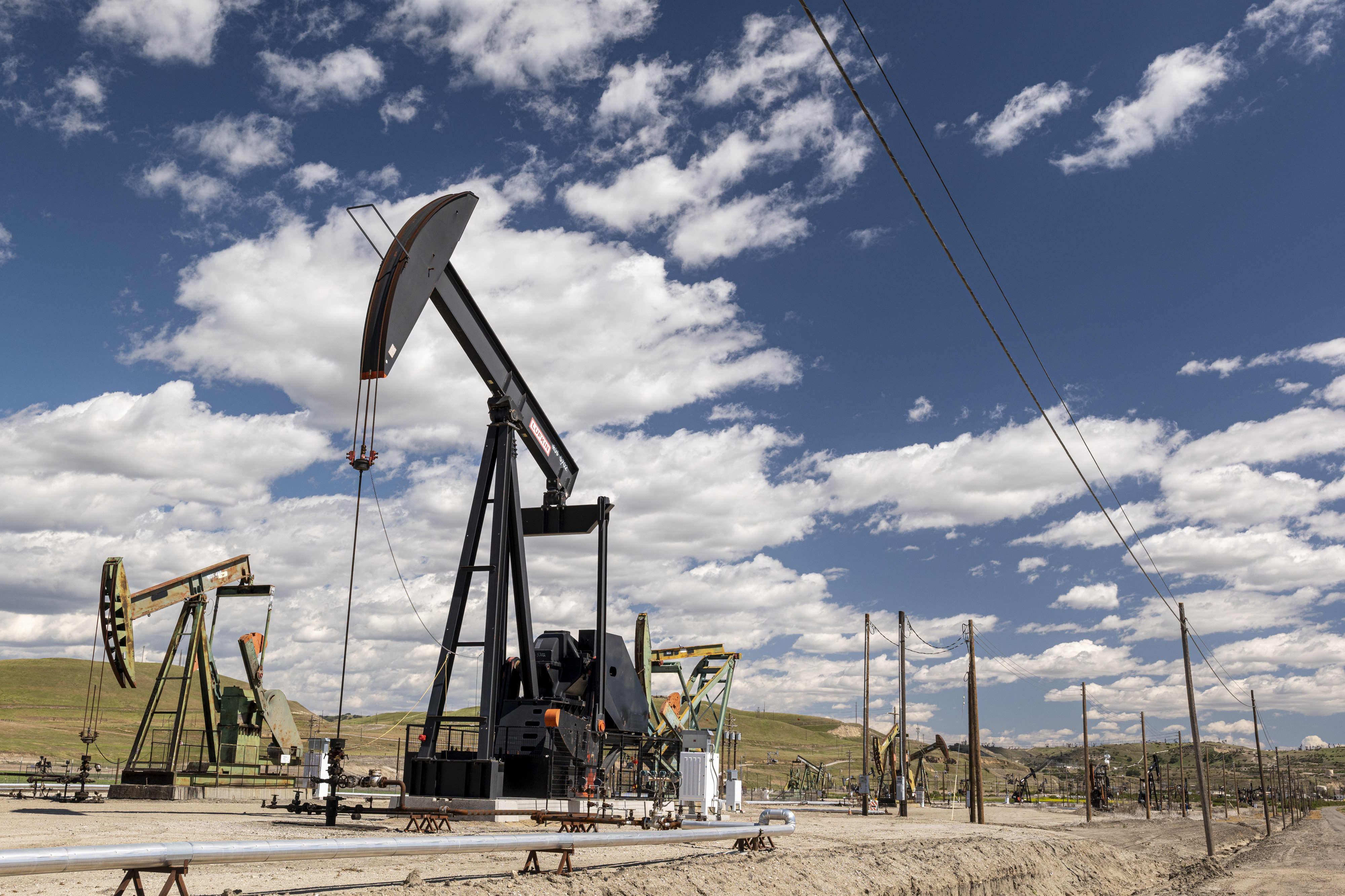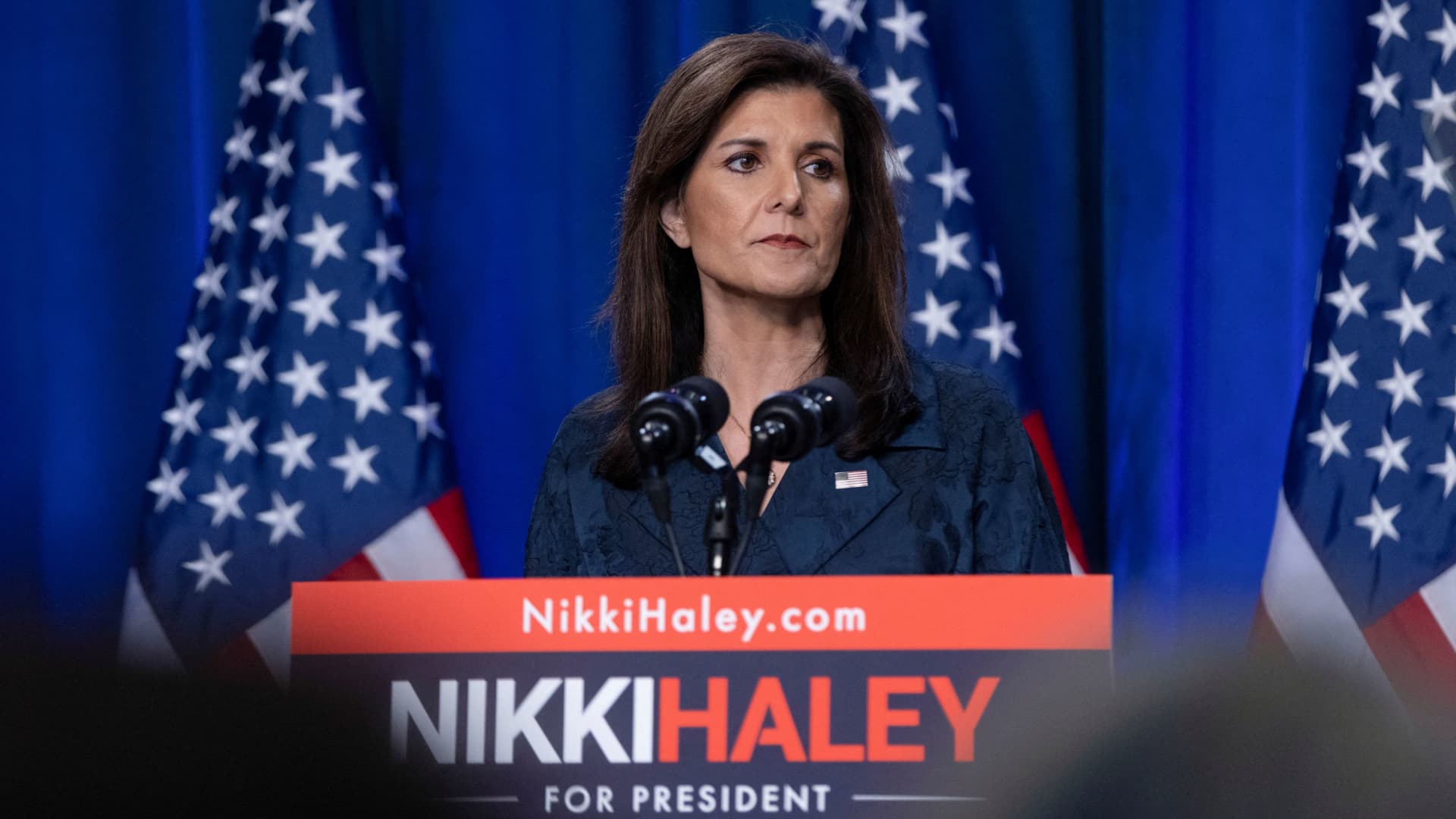
Oil well pump jacks operated by Chevron Corp. in San Ardo, California, U.S., on Tuesday, April 27, 2021.
David Paul Morris | Bloomberg | Getty Images
Oil prices on Thursday jumped following Russia’s invasion of Ukraine, with international benchmark Brent crude futures surpassing $100 a barrel for the first time since 2014.
Brent crude futures leapt more than 7.6% to trade at $104.22 a barrel at around 10:00 a.m. London time. U.S. West Texas Intermediate futures rose over 7.3% to trade at $98.83, notching its highest level since 2014.
Natural gas prices popped 5.6%. Spot gold, traditionally seen as a safe haven asset, climbed 2.3%, last trading at $1,951.7.
Russian President Vladimir Putin launched an attack on Ukraine early Thursday local time after months of military buildup along the border they both share. The attack came days after the Kremlin leader formally recognized the independence of two pro-Moscow separatist regions in eastern Ukraine.
Explosions were heard in Ukraine’s capital of Kyiv, NBC News reported. The crisis in Ukraine is changing rapidly and specific reports from the country are difficult to confirm.
Ukrainian Foreign Minister Dmytro Kuleba said via Twitter on Thursday that Putin had “launched a full-scale invasion,” of the country, which he described as “a war of aggression.” Kuleba called on world leaders to stop the Russian president. “The time to act is now,” he said.
The United States, Canada, Britain, the European Union, Australia and Japan were among the countries to announce the first wave of sanctions against Russia earlier this week, targeting banks and wealthy individuals. A second barrage of measures is widely expected shortly.
Matthew Smith, lead oil analyst for the Americas at Kpler, said there may not be an immediate disruption to supply despite Russia’s attack.
Europe and Russia are very interconnected when it comes to energy, and each side is reliant on the other, he told CNBC’s “Capital Connection” on Thursday. The U.S. and the West will probably not impose sanctions specifically on energy flows, he added.
“We’re not likely to see the supply side of things interrupted, even though everything else is escalating,” he said.
Will [the U.S.] sanction Russian oil or gas? Because this would mean significant pain for even U.S. consumers.
Ellen Wald
Transversal Consulting
In addition to tight supplies, there’s also uncertainty about sanctions from President Joe Biden’s administration, said Ellen Wald, president of Transversal Consulting.
“Will they sanction Russian oil or gas? Because this would mean significant pain for even U.S. consumers. The United States does import Russian oil. In fact, there’s oil headed to the U.S. as we speak,” Wald told “Street Signs Asia.”
“Now that we’ve actually got this military operation happening on the ground, you have the prospect of physical inability to shift oil out of certain areas, particularly the Black Sea. So, I think we’re now seeing that factoring into prices as well,” she said Thursday.
On escalations in Ukraine, Goldman Sachs said in a Wednesday report that the impact on energy prices should be limited. “While Europe imports a large share of its natural gas consumption from Russia, the US is a net exporter of natural gas and any spillover effects on US gas prices should be modest,” analysts at the Wall Street bank said.
“Our commodities strategists also expect only a modest impact on oil prices, though they see the risks as skewed to the upside because the oil market is already tight.”
— Correction: This story has been updated to accurately reflect that Ellen Wald said the military operation on the ground is factoring into the spike in oil prices.




